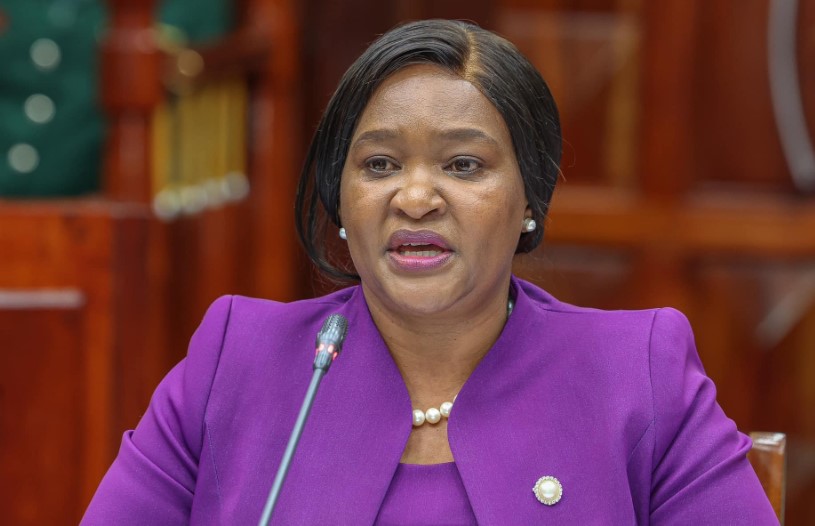Counties accuse Treasury of over-control, blame e-procurement for slow services

The governors have accused the Treasury of ignoring their concerns and failing to demonstrate where the e-procurement system is functioning successfully.
The national government has been accused of frustrating county operations by over-controlling funds, a move that has reportedly slowed the delivery of essential services.
Governors have criticised the Treasury’s insistence on enforcing the e-procurement system despite a court injunction, saying the push is crippling counties’ ability to pay vendors and provide basic services.
More To Read
- Treasury announces Sh21.1 billion cut to 2025-26 budget amid revenue shortfalls
- EACC probing MCAs accused of blackmailing governors, manipulating county tenders
- Court rules governors accountable for county procurement
- 16 counties on the spot for failing to pay staff despite receiving full Treasury funds
- CS Murkomen backs mandatory e-procurement adoption amid legal pushback
- Treasury to launch debt automation system, single account on October 1
“Despite CoG obtaining an injunction on the e-procurement rollout, the Treasury continues to push for the system’s adoption against court orders that allow both electronic and manual processes,” Council of Governors (CoG) Chairperson Ahmed Abdullahi said, adding that the move undermines the separation of powers between county and national governments.
Speaking in Mombasa during a joint consultative meeting with governors from 24 Arid and Semi-Arid counties, the Wajir governor stressed that counties are not opposed to automation but are concerned over the rushed rollout, which has caused user difficulties, micro-management, and centralisation of procurement.
“If this system can automate processes, create a proper audit trail, provide a dashboard for comparisons and still respect Article 62 of the Constitution on the separation of county and national government powers, then we have no objection,” he said.
He also urged the government to “desist from spreading misinformation that CoG opposes transparency or interferes with manual procurement by plucking papers from documents.”
“There is a lot of misinformation out there suggesting that CoG is refusing the system to avoid accountability. Those are very lame accusations. The problem is the system, which is not functioning as intended in a seamless manner,” he said.
The council warned that economic activity is slowing as counties struggle to spend and procure goods.
“A quarter of the Financial Year is gone, and the government is our largest consumer. When government consumption slows due to bureaucratic processes, it impacts growth numbers,” Ahmed said.
He noted that vendors, including fuel suppliers, have frozen accounts because counties cannot commit to payments.
“Counties provide basic and essential services. If a hospital cannot procure a critical drug in an emergency because of a system being tested and not working, we are compromising not just service delivery but also lives,” he added.
The governors accused the Treasury of ignoring their concerns and failing to demonstrate where the e-procurement system is functioning successfully.
“We have never had a response showing how this system works in a particular county. No state department has completed end-to-end procurement using it. Instead, there is dramatisation accusing counties of avoiding accountability and corruption,” Ahmed said.
The meeting also highlighted delays in bursary disbursements. CoG revealed that some counties have allocated funds but cannot release them due to a lack of approvals from the Office of the Controller of Budget.
“Counties have vetted eligible students, collected applications and determined beneficiaries, but the process has been stalled. These debates were concluded last year through inter-governmental partnership agreements with the Ministry of Education and the national government. We agreed last year to disburse funds from that year’s calendar and then move to individualised county systems. There is no reason to fight over these functional issues again,” Ahmed said.
Agriculture Cabinet Secretary Mutahi Kagwe, who attended the meeting, urged counties to collaborate with the national government in transforming Kenya’s livestock sector into a pillar of food security, rural livelihoods, and economic growth.
Top Stories Today










































